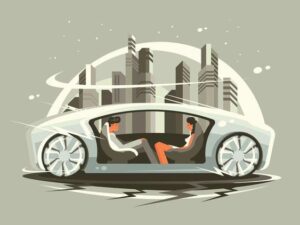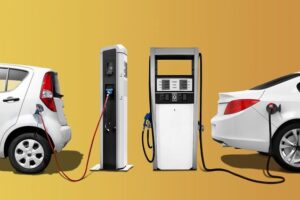
Blockchain Technology in Automotive Supply Chains

Hey! Have you ever wondered how cars get from the factory to the dealership? It’s a pretty crazy journey that involves a lot of steps and people. One new technology that’s making this whole process way cooler and more efficient is called blockchain. Don’t worry if you’re not sure what that means yet – I’m here to break it down in a way that’s easy to understand. Let’s dive into how blockchain is changing the way cars are made and delivered!
What is Blockchain?
First, let’s talk about what blockchain actually is. Imagine you have a notebook where you write down everything that happens with your car. Every time you get gas, change the oil, or even wash it, you write it down. Now, imagine that notebook is digital, and instead of just you writing in it, everyone who works on your car writes in it too. And once something is written down, it can’t be changed or erased. That’s basically what a blockchain is – a digital ledger that records information in a secure and unchangeable way.
Why Use Blockchain in Car Supply Chains?
So, why would car companies want to use blockchain? Here are some big reasons:
- Transparency: Everyone can see what’s happening at each step.
- Security: It’s super hard to hack or alter the records.
- Efficiency: Things move faster because there’s less paperwork and fewer mistakes.
Step-by-Step: How Blockchain Works in Car Supply Chains
Let’s go through how blockchain works step by step in the automotive supply chain.
Step 1: Getting Raw Materials
Everything starts with raw materials like metal, plastic, and rubber. With blockchain, the car company can keep track of where these materials come from. They can see if the materials are from ethical sources and if they’re high quality. This information gets recorded on the blockchain so everyone involved knows the materials are legit.
Step 2: Manufacturing Parts
Next, these raw materials are turned into car parts like engines, seats, and tires. Each part gets recorded on the blockchain, showing where it was made and who made it. This makes it easy to trace any issues back to the source. If a batch of tires turns out to be faulty, the company can quickly find out where they came from and fix the problem.
Step 3: Assembling the Car
Once all the parts are ready, the car gets assembled. The blockchain records every step of the assembly process. This means if there’s a problem with the car later on, the company can look back at the blockchain to see what might have gone wrong during assembly.
Step 4: Shipping the Car
After the car is built, it needs to be shipped to the dealership. Blockchain helps track the car during shipping. If the car gets delayed or something happens during transport, everyone can see what’s going on in real time. This helps prevent any surprises for the dealer or the customer.
Step 5: Selling the Car
Finally, the car arrives at the dealership and is ready to be sold. The dealership can use the blockchain to show customers the car’s history. This includes where the materials came from, how the car was built, and how it got to the dealership. This builds trust with customers because they can see exactly what they’re buying.
Benefits of Blockchain in Car Supply Chains
Using blockchain in the automotive supply chain has some pretty awesome benefits. Let’s look at a few of them:
- Better Quality Control: With all the information recorded on the blockchain, companies can quickly find and fix any issues with parts or manufacturing.
- Less Fraud: Because the blockchain is secure and unchangeable, it’s much harder for people to commit fraud or tamper with records.
- Faster Processes: With everything recorded digitally and fewer mistakes, the whole process from raw materials to selling the car goes a lot faster.
- Improved Trust: Customers can see the full history of their car, which makes them feel more confident in their purchase.
Real-World Examples
Some car companies are already using blockchain to improve their supply chains. Here are a couple of examples:
- BMW: They’re using blockchain to track where their parts come from and ensure they meet high standards.
- Ford: They’re testing blockchain to track the ethical sourcing of raw materials like cobalt, which is used in batteries.
The Future of Blockchain in Cars
Blockchain technology is still pretty new, but it’s already making a big impact. As more car companies start using it, we can expect even more benefits. Imagine a future where you can scan a code on your car and see its entire history from the factory to your driveway. That’s the power of blockchain!
Final Thoughts
So, there you have it – a simple guide to how blockchain is changing the way cars are made and delivered. It’s all about making the process more transparent, secure, and efficient. Whether you’re a car enthusiast or just curious about new technology, understanding blockchain can give you a whole new appreciation for the journey a car takes to get to you.
Next time you see a new car on the road, you’ll know a little bit more about the amazing technology that helped bring it to life. Stay curious, and keep exploring how tech is changing our world!




Average Rating